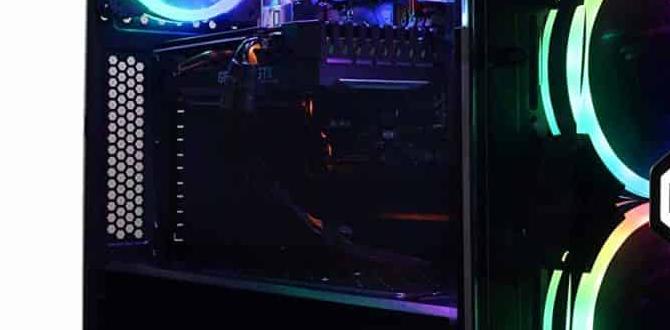Processor
Intel i5 or AMD Ryzen 5
Graphics Card
Nvidia GTX 1660 or AMD RX 580
RAM
8-16 GB DDR4
Storage
256 GB SSD + 1 TB HDD
Power Supply
550W or higher
Cooling
Aftermarket air or liquid cooling
Motherboard
Compatible with CPU and GPU
Case
Mid-tower with good airflow
When looking to build a moderately priced gaming PC, certain components are crucial to ensure a smooth gaming experience without breaking the bank. Here’s a breakdown of what you need:
Processor
For a balance of performance and cost, consider opting for an Intel i5 or AMD Ryzen 5 processor. These mid-range CPUs offer solid gaming performance without the premium price tag.
Graphics Card
The Nvidia GTX 1660 and AMD RX 580 are excellent choices for budget-conscious gamers. They provide good performance for 1080p gaming without costing a fortune.
RAM
Make sure to have 8-16 GB of DDR4 RAM to handle multitasking and demanding games efficiently.
Storage
Combining a 256 GB SSD with a 1 TB HDD gives you a good balance of speed and storage capacity for your games and other files.
Power Supply
Invest in a 550W or higher power supply to ensure stable and reliable power delivery to your components.
Cooling
Consider aftermarket air or liquid cooling solutions to keep your system running smoothly, especially during intense gaming sessions.
Motherboard
Choose a motherboard that is compatible with your chosen CPU and GPU to avoid compatibility issues.
Case
Opt for a mid-tower case with good airflow to keep your components cool and enhance the overall aesthetics of your gaming setup.
Conclusion
Building a moderately priced gaming PC requires careful consideration of each component to achieve a balance between performance and affordability. By selecting the right processor, graphics card, RAM, storage, power supply, cooling system, motherboard, and case, you can create a setup that meets your gaming needs without breaking the bank.
FAQs
1. What is the importance of a powerful graphics card in a gaming PC?
A powerful graphics card is essential for rendering detailed graphics in modern games and ensuring smooth gameplay at higher resolutions and frame rates.
2. Why is cooling important in a gaming PC?
Effective cooling helps dissipate heat generated by components during gameplay, preventing overheating and ensuring optimal performance and longevity of the hardware.
3. How does RAM affect gaming performance?
RAM plays a crucial role in multitasking and game loading times, with higher amounts of RAM allowing for smoother gameplay and better overall system performance.
4. What factors should be considered when selecting a power supply for a gaming PC?
When choosing a power supply, factors such as wattage, efficiency ratings, modular cables, and brand reputation should be taken into account to ensure reliable and stable power delivery to the system.
5. Why is compatibility between the motherboard, CPU, and GPU important?
Compatibility ensures that all components work seamlessly together, preventing potential issues such as bottlenecking or system instability that can arise from mismatched hardware.
